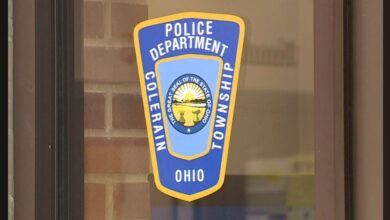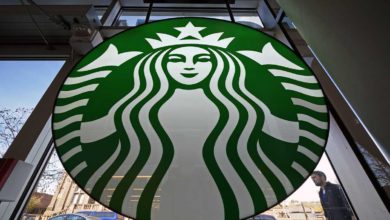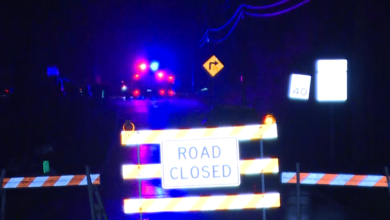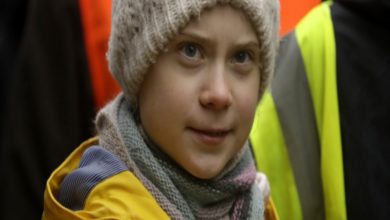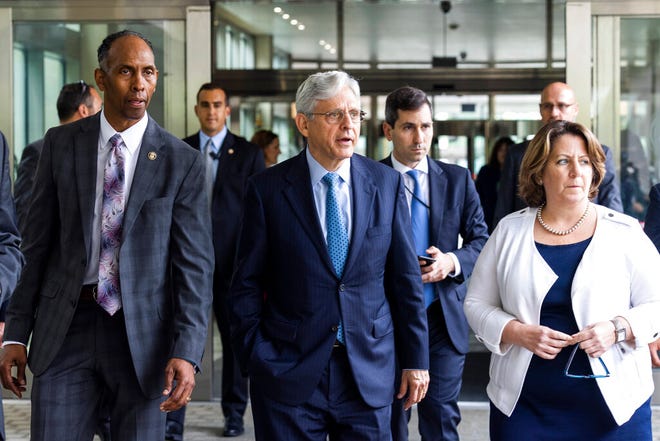
CHICAGO – As part of the Biden administration's approach to combatting rising gun violence in the U.S., the Justice Department launched five new gun trafficking "strike forces" Thursday to target the illegal flow of firearms across state lines.
Attorney General Merrick Garland spoke with U.S. attorneys and agents in the Bureau of Alcohol, Tobacco, Firearms, and Explosives at the ATF headquarters in Washington Thursday morning before traveling to Chicago to discuss the new initiative with local leaders.
Speaking from a church in Chicago's North Lawndale neighborhood – which witnessed two mass shootings the day before – the Windy City native called gun crime an ongoing tragedy.
"I feel it particularly in my home town," Garland told reporters.
Under the new strike forces announced last month, authorities will coordinate with the ATF and cities and states to crack down on gun trafficking corridors that have diverted guns into New York, Chicago, Los Angeles, the San Francisco Bay Area and Washington, D.C., according to the Justice Department.
'Eye-popping numbers':Chicago sues Indiana gun store tied to 850 firearms recovered from crime scenes
Police reform:Chicago approves new layer of civilian police oversight

Garland said the strike forces differ from past efforts to clamp down on gun crime because the Justice Department and its partners will focus on drug trafficking corridors across jurisdictions, from the cities and regions that illegally source guns to criminals in the nation’s largest cities.
The U.S. Attorney’s office in Chicago, for example, will look for illegal guns in the city and as they pass along routes to Chicago from southern Illinois, eastern Indiana and Wisconsin, Garland said.
"We’re sending a message to the gun traffickers: We are going to find you no matter where you are," Chicago Mayor Lori Lightfoot told reporters Thursday after meeting with Garland.
Chicago Police Superintendent David Brown previously announced the department dedicated 50 officers to be involved in gun trafficking efforts. Asked by reporters about whether the strike force brings any additional resources to the city, Lightfoot said: "That's not the point."
"It's focused coordination and collaboration across state lines. That is going to be a game-changer. Other resources, I’m confident, will come," she said.
Garland said the strike forces build on previous gun violence reduction efforts, including Project Safe Neighborhoods, which was established during the Trump administration. "We're learning from the past," he said.
Garland also met with representatives from READI Chicago, a violence reduction program. He said law enforcement needs community organizations to help stop gun violence if the strike force initiative is to work, and that those organizations need to trust law enforcement.
"We're here today because the other half of this project is relationships with the community. We can't hope to solve this problem without some of both," he said, referring to both community intervention and law enforcement.
'It has to end':Biden targets illegal gun sales, rogue dealers in strategy to combat rising crime
Earlier Thursday, Garland and Deputy Attorney General Lisa Monaco visited ATF headquarters in Washington to speak with bureau leaders, investigators and U.S. Attorneys from the Eastern District of California, the Northern District of California, the Eastern District of New York, the Northern District of Illinois and the District of Columbia.
"We all know our job is to go after those who pull the trigger," Monaco said. She added: "But our job is also, of course, to go after the sources of those guns, the corridors that they travel in and the networks that feed those guns to the places where they are doing the most violent crime, and that is what this series of strike force efforts is all about."
President Joe Biden referenced the strike forces in a speech from the White House last month touting a "zero-tolerance policy" for rogue gun dealers and a new focus by the Justice Department to try to stop the illegal sale of firearms.
There is no federal gun trafficking law, so federal agents often must rely on other statutes, like lying on a firearms purchase form, to prosecute gun trafficking cases or stop straw purchasers, people who buy weapons legally to then provide them to others who can’t legally have them. Officials hope the new plan will mean federal prosecutors in some of the supply cities will be more likely to bring charges in those cases.
While the strike forces focus on illegal gun sales, Garland said that the Justice Department is also supporting the Biden administration’s overall push for more gun regulation by suggesting new legislation that would enable the government to track so-called ghost guns – privately made firearm kits that do not have serial numbers.
"We heard quite a bit this morning about the amount of ghost gun sales, which are turning out to be a pretty significant portion of the guns used in crimes," Garland said.
The launch Thursday comes as some U.S. cities are seeing a rise in murders and shootings this year. Compared to the same period last year, shooting incidents are up in New York City, Los Angeles and San Francisco, and homicides are up slightly in Washington, among other cities, according to police.
In Chicago, shootings are up 9% from the same time last year. Chicago has seen more than 2,100 shooting victimizations – an event when a person becomes the victim of a crime – so far this year, and more than 380 people have been fatally shot, according to city data.
The city saw three shootings Wednesday where four or more people were shot or killed, not including the shooter – what the nonprofit Gun Violence Archive, which tracks incidents of gun violence, defines as a mass shooting.

Five men were shot on the city's West Side on Wednesday, including a 14-year-old boy who was fatally shot in the head, according to police. Minutes later several blocks away, five people – including teens ages 14, 15 and 17 – were wounded.
Then, just before midnight, eight people who had been traveling on a party bus on the city's North Side were wounded in a drive-by shooting, according to police.
Brown called on community members to come forward with information about the shootings in a Thursday press conference. Many of the people targeted in the shootings were not cooperating with law enforcement, Brown said.
"We want to keep our babies safe. They deserve a right to live," pastor James Brooks of Harmony Community Church in North Lawndale, where two of the shootings happened, said at the press conference. "We need the community to help us. We need everybody. It’s all of our responsibility to step out and say something."
Meanwhile, Chicago leaders approved a new layer of civilian police oversight Wednesday after years of protests against officer misconduct – a move officials say is key to reestablishing community trust in law enforcement.
"Reform is good for policing," Brown said Thursday. "It has the potential to build trust with the communities."
Contributing: Associated Press
Source link


